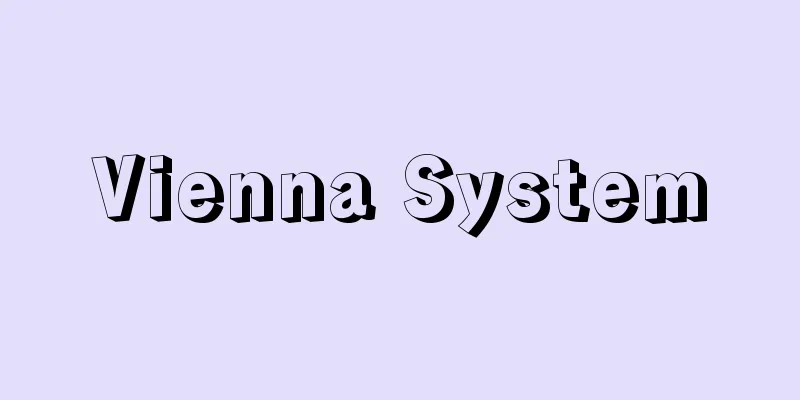Vienna System

|
A system of rule created in the aftermath of the Napoleonic Wars. It is called the Metternich System in the West because it was led by Austrian Chancellor Metternich. The European monarchs, aristocrats and other restorationists who won the Napoleonic Wars needed this system to suppress the revival of the great revolutionary wave that began with the French Revolution and to maintain the international order created by the Congress of Vienna, and they relied on two pillars to achieve this: the Holy Alliance and the Quadruple Alliance (later the Quintuple Alliance). The former was responsible for the ideological aspects of the Vienna System, while the latter served as a military and diplomatic consultation mechanism between the great powers. The leaders of the four (five) great powers initially met regularly to put down the liberal rebellions that broke out in Spain and Naples, but soon they were divided into two factions: the three Eastern European countries (Russia, Austria and Prussia) that united under the principle of the Holy Alliance, and Britain and France, who did not want to interfere in the revolution. Greece achieved independence thanks to the conflicting interests of the five great powers, and Latin American countries were spared interference from the Vienna System thanks to the diplomacy of Britain, which pursued its interests as an advanced capitalist country. When the July Revolution occurred in France in 1830, the Vienna System became even more divided, and when France and Britain formed the Entente Entente and raised the banner of liberalism, the three Eastern European countries formed the Triple Secret Entente in an attempt to revive the Holy Alliance, but rebellions in various places erupted as the "Revolution of 1848," and the Vienna System collapsed. [Hiroshi Momose] [References] |©Shogakukan "> Europe in 1815 Source: Shogakukan Encyclopedia Nipponica About Encyclopedia Nipponica Information | Legend |
|
ナポレオン戦争の戦後処理を通じてつくり出された支配体制。オーストリアの宰相メッテルニヒが主導したことから、欧米ではメッテルニヒ体制Metternich Systemとよぶ。ナポレオン戦争に勝利したヨーロッパの君主、貴族などの復古勢力は、フランス革命を端緒とする革命の大波の復活を抑え込み、ウィーン会議が生んだ国際秩序を維持するためにこの体制を必要としたが、そのために依拠したのが神聖同盟と四国同盟(のちに五国同盟)という2本の柱であった。ウィーン体制のイデオロギー面を担う前者に対して、後者は諸大国間の軍事的、外交的協議機構としての役割を果たした。四(五)大国の指導者は、初め定期的に会合し、スペイン、ナポリで発生した自由主義者の反乱を鎮圧したが、まもなく、神聖同盟の原理のもとに結集する東欧三国(ロシア、オーストリア、プロイセン)と、革命干渉を好まないイギリス、フランスに立場が分裂していった。五大国の利害対立に利せられてギリシアは独立を遂げ、また先進資本主義国としての利益を追求するイギリスの外交によって、中南米諸国はウィーン体制の側からの干渉を免れた。1830年にフランスで七月革命が起こると、ウィーン体制はさらに大きく分裂するようになり、フランス、イギリスが真摯(しんし)協商を形成して自由主義の旗印を掲げると、東欧三国は三国秘密協商を結成して神聖同盟の再興を図るありさまであったが、各地の反乱は「一八四八年の革命」となって噴出し、ウィーン体制は崩壊した。 [百瀬 宏] [参照項目] |©Shogakukan"> 1815年のヨーロッパ 出典 小学館 日本大百科全書(ニッポニカ)日本大百科全書(ニッポニカ)について 情報 | 凡例 |
<<: Vienna Cathedral - Stephansdom, Wien
Recommend
Shodonshibai - Shodonshibai
This is a folk performing art handed down on Kake...
Igneous activity
It refers to the entire process of magma's lif...
Armane School - Armane School
…When the party split in 1981, it rebelled agains...
Master Izumo - Master Izumo
…His major works alone or in collaboration includ...
Suitcase - Kouri
A storage container woven from willow, bamboo, or...
《Memorial Days》
...This ambitious work attempts to put into words...
Porro-Koppe's Principle
...In America, A. King and J. W. Black succeeded ...
Rarefied gas dynamics
Also known as superaerodynamics. A field of gas dy...
Baozi - Hokei
A prefecture-level city in the western part of Sh...
Weekend Crisis
…Hitler ordered the military to consider a strate...
Commentary on the Direct Study Records - Chokusai Shorokukaidai (English) Zhizhai shu-lu jie-ti
Annotated bibliography of the Southern Song Dynast...
Infidelity
〘noun〙 (adjective) Not maintaining chastity. In a ...
Textbook - Kyokasho
Generally speaking, it refers to books that are e...
Functional heart murmurs
A functional heart murmur is a noise that can be ...
Haeinsa Temple
This temple is located in Gaya-myeon, Hampeon-gun...









